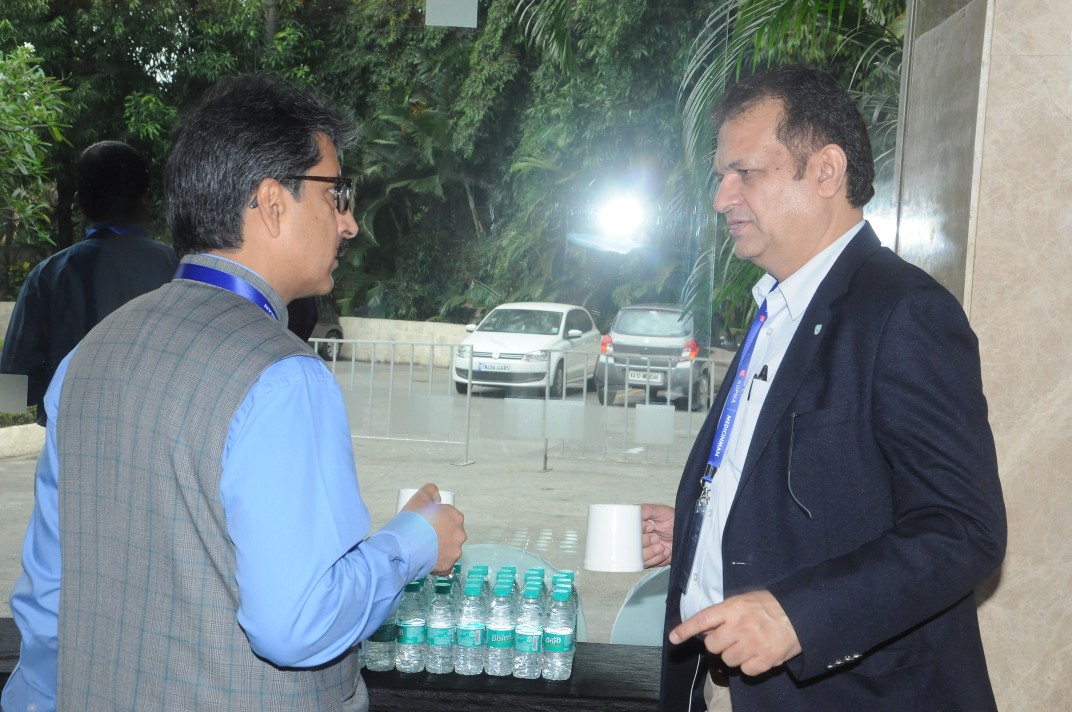Hot topics
DeepSeek – A Precursor to Patent Disruption?
The rise of open-source platforms, such as China’s DeepSeek...
Deep Bhandari: Human capital holds the highest value for organizations
DigiStorm 2018 was held on 11 September at the Lalit Ashok in Bangalore. The event was headlined by Prabir Jha – President & Global Chief People Officer, Cipla. Deep Bhandari – Editorial Board Member, MedicinMan, gives us the highlights of the post-lunch session.
7 Ways to Increase Productivity of Pharma Sales Reps
With access to HCPs becoming a daunting task for...
Pharma CEO Roundtable on 27th October 2021
Engaging Doctors – Physical, Digital & Hybrid: Translating Strategy...
Top 25 Indian Pharma Companies by Revenues in 2024
India pharma is crucial for global healthcare, providing affordable...
Top 10 Indian Pharma – 2025
India's top 10 pharma companies by market capitalization, offering insights into...
Antibody-Drug Conjugates (ADCs): The Disruptors Leading Oncology’s Gold Rush in 2025
1. Market Overview
The oncology sector remains the most dominant...
FLUX – Indian Pharma in the Post VUCA World
Introduction
For decades, leaders and organizations have relied on the...
Top 25 Indian Pharma Companies by Revenues in 2024
India pharma is crucial for global healthcare, providing affordable...
Top 10 Indian Pharma – 2025
India's top 10 pharma companies by market capitalization, offering insights into...
Antibody-Drug Conjugates (ADCs): The Disruptors Leading Oncology’s Gold Rush in 2025
1. Market Overview
The oncology sector remains the most dominant...
FLUX – Indian Pharma in the Post VUCA World
Introduction
For decades, leaders and organizations have relied on the...
Top 25 Indian Pharma Companies by Revenues in 2024
India pharma is crucial for global healthcare, providing affordable...
Top 10 Indian Pharma – 2025
India's top 10 pharma companies by market capitalization, offering insights into...
Antibody-Drug Conjugates (ADCs): The Disruptors Leading Oncology’s Gold Rush in 2025
1. Market Overview
The oncology sector remains the most dominant...
FLUX – Indian Pharma in the Post VUCA World
Introduction
For decades, leaders and organizations have relied on the...
Top 25 Indian Pharma Companies by Revenues in 2024
India pharma is crucial for global healthcare, providing affordable...
Top 10 Indian Pharma – 2025
India's top 10 pharma companies by market capitalization, offering insights into...
Antibody-Drug Conjugates (ADCs): The Disruptors Leading Oncology’s Gold Rush in 2025
1. Market Overview
The oncology sector remains the most dominant...
FLUX – Indian Pharma in the Post VUCA World
Introduction
For decades, leaders and organizations have relied on the...
Hot topics
MedicinMan Steps into Year Five
Articles by K. Hariram, Daxesh Patel, Gopal Kishore, Amit Jain, Sunil Bajaj and Vivek Hattangadi
Creat Customer
Articles by K. Hariram, Hanno Wolfram, Vivek Hattangadi, Salil Kallianpur, Amit Jain, Dr. Palakodeti Ratnakar, and Pankaj Mehrotra
Digital Marketing Kick Starter for Pharma Marketers
An interview with Salil Kallianpur - Executive VP at GSK Primary Care on the state of digital in pharma marketing and pointers for digital marketing success.
What Makes Managers Effective – The Google Way
After settling down comfortably into my seat on a flight from Chicago to San Francisco, I started browsing through my digital copy of the latest issue of The Economist. Much to my surprise, I saw an article titled, The Usefulness of Managers beginning with the sentence, "Is your manager really necessary?"
Bingo!!! My mind went back to so many discussions we keep having about our Indian Pharma industry and the various arguments about line management and their contributions, role clarity, their usefulness and the often-asked question, “Are they really effective?”
When the top leadership says, that effective managers are a rare breed with comments such as, “they are the weakest link in our chain”, my mind keeps racing through with the thought as to, “if they are not, who has to be responsible to make them effective?”
Having been a line manager and climbing the ladder against odds, I can understand and empathise with both sides of this management world.
However, when these doubts and questions keep raising its head often, my curiosity quotient kept raising a question, “Are we in Indian pharma very unique to have such challenges?” A chance meeting I had with a team of Google senior management personnel based in Google’s headquarters in California during this trip gave me an interesting insight on what Google did and what it continues to do.
Much to my solace I found that their apprehensions were similar to what we in Indian Pharma face. The differentiating factor was that their "people operations" team (HR) has applied the Google Way (data analytics) to management analysis and developed a manifesto entitled Eight Habits of Highly Effective Google Managers.
Frontline Managers
Articles by Vivek Hattangadi, Raja Reddy, K. Hariram, Satish Kota, P. S. Parameswaran, Gopal Kishore, Ramandish Arora, Mohit Kumar Bhutani, Richa Goyal and Mahendra Kumar Rai
Top 25 Indian Pharma Companies by Revenues in 2024
India pharma is crucial for global healthcare, providing affordable...
Top 10 Indian Pharma – 2025
India's top 10 pharma companies by market capitalization, offering insights into...
Antibody-Drug Conjugates (ADCs): The Disruptors Leading Oncology’s Gold Rush in 2025
1. Market Overview
The oncology sector remains the most dominant...
FLUX – Indian Pharma in the Post VUCA World
Introduction
For decades, leaders and organizations have relied on the...
Top 25 Indian Pharma Companies by Revenues in 2024
India pharma is crucial for global healthcare, providing affordable...
Top 10 Indian Pharma – 2025
India's top 10 pharma companies by market capitalization, offering insights into...
Antibody-Drug Conjugates (ADCs): The Disruptors Leading Oncology’s Gold Rush in 2025
1. Market Overview
The oncology sector remains the most dominant...
FLUX – Indian Pharma in the Post VUCA World
Introduction
For decades, leaders and organizations have relied on the...
Top 25 Indian Pharma Companies by Revenues in 2024
India pharma is crucial for global healthcare, providing affordable...
Top 10 Indian Pharma – 2025
India's top 10 pharma companies by market capitalization, offering insights into...
Antibody-Drug Conjugates (ADCs): The Disruptors Leading Oncology’s Gold Rush in 2025
1. Market Overview
The oncology sector remains the most dominant...
FLUX – Indian Pharma in the Post VUCA World
Introduction
For decades, leaders and organizations have relied on the...
Top 25 Indian Pharma Companies by Revenues in 2024
India pharma is crucial for global healthcare, providing affordable...
Top 10 Indian Pharma – 2025
India's top 10 pharma companies by market capitalization, offering insights into...
Antibody-Drug Conjugates (ADCs): The Disruptors Leading Oncology’s Gold Rush in 2025
1. Market Overview
The oncology sector remains the most dominant...
FLUX – Indian Pharma in the Post VUCA World
Introduction
For decades, leaders and organizations have relied on the...
MedicinMan was launched in 2011 as India’s 1st Magazine dedicated to the cause of Field Force Excellence in Pharma and Devices.
Read More
Headlines
Top 25 Indian Pharma Companies by Revenues in 2024
India pharma is crucial for global healthcare, providing affordable...
Top 10 Indian Pharma – 2025
India's top 10 pharma companies by market capitalization, offering insights into...
Antibody-Drug Conjugates (ADCs): The Disruptors Leading Oncology’s Gold Rush in 2025
1. Market Overview
The oncology sector remains the most dominant...
Newsletter
Get important news delivered directly to your inbox and stay connected!



